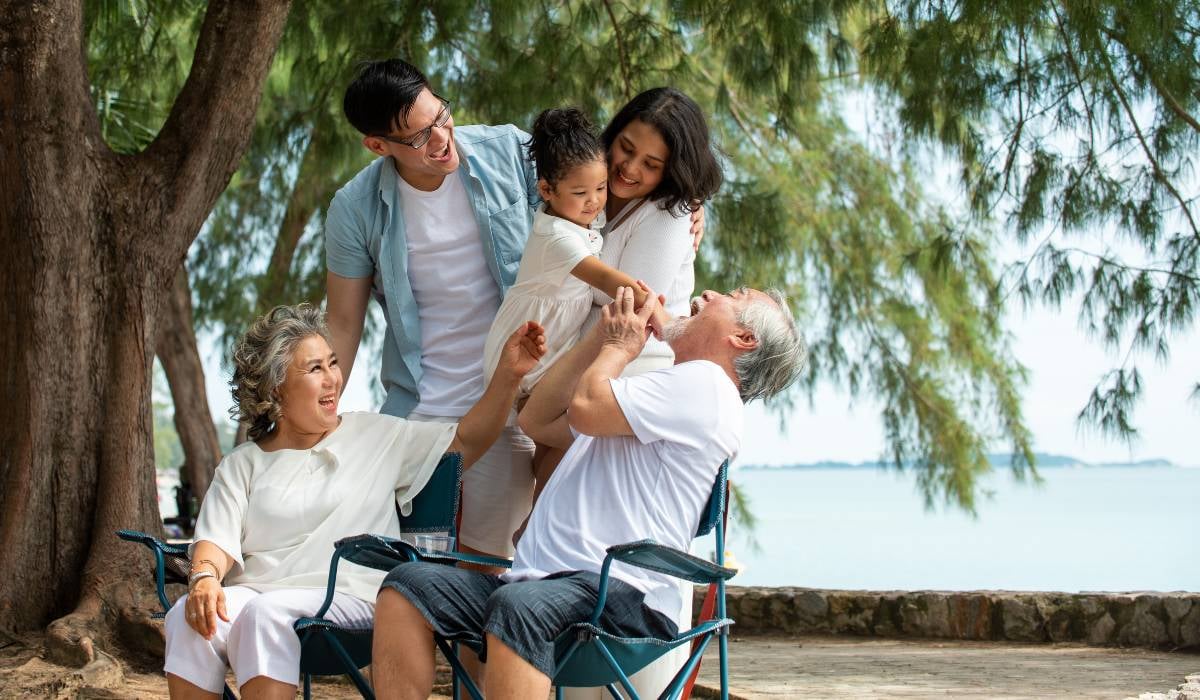
Cancer is a genetic disease caused by changes in our genes that control the way cells grow and multiply. Cells are the basic building blocks of our body, and each cell holds a copy of our genes. Genes act like an instruction manual for our body. During cell division, if your body substitutes, removes, or adds parts to your manual, this could cause genetic changes called variants or mutations. These genetic changes can cause cancer to form, grow and spread.
What Causes Cancer-related Genetic Changes?
Cancer-related genetic changes can occur in three ways:
- Random errors that happen as our cells multiply
- Carcinogens in our environment that alter our genes. Some of these include UV rays from the sun, chemicals in tobacco smoke, and the human papillomavirus (HPV).
- Inherited genetic changes from one of our parents
Cancer Caused by Random Errors and Carcinogens
The first two genetic changes, random errors, and carcinogens in our environment can happen at any time throughout our life. Usually, these changes are not harmful. However, an accumulation of genetic changes over many years can turn healthy cells into cancerous cells. Ninety percent of cancers occur by chance because of these genetic changes over time.
Cancer Caused by Inherited Genetic Mutations
The third type of genetic change is an inherited mutation from one of our parents and can be passed down from one generation to the next. Inheriting a genetic change does not mean one will develop cancer. It does, however, place you at a higher risk for developing specific cancer(s). Therefore, cancer sometimes appears to ‘run in families.’ It is believed that 5 to 10% of all cancers are caused by an inherited genetic change. Families who carry an inherited gene change associated with increased cancer risk are said to have a hereditary cancer syndrome.
Families with a hereditary cancer syndrome typically have certain characteristics which include, but are not limited to:
- Early onset of cancer in family members, typically before the age of 50
- Three or more family members with like cancers such as breast cancer, ovarian cancer, pancreatic cancer, prostate cancer, melanoma, colon cancer, and gastric cancer
- An individual with two or more primary cancers in their lifetime, such as colon and gastric cancer or breast cancer that occurs in both breasts
- Rare cancers such as male breast cancer or sarcoma
- Ancestry, such as Ashkenazi Jewish, with a personal or family history of breast cancer, ovarian cancer, or pancreatic cancer
Why is Genetic Counseling Recommended Before Genetic Testing?
In order to provide the best possible outcomes, it’s ideal to identify those families who have a hereditary cancer syndrome. This is because cancer specialists will manage them differently due to an increased risk of certain cancers. The only way to know if a person has a genetic change associated with increased cancer risk is for that individual to undergo genetic testing. It is strongly recommended an individual have genetic counseling prior to genetic testing, as there are advantages and disadvantages to genetic testing. During the genetic counseling visit, a detailed personal and family history of cancer will be obtained, and recommendations for testing will be made.
What to Expect from the Genetic Testing Process
Genetic testing can be performed on blood and saliva. Results are typically available 2-3 weeks after the specimen is submitted to the lab.
Most insurances help pay for genetic testing when an individual meets recommended national guidelines. Fortunately, genetic testing is much more affordable today than it was 10 to 20 years ago. All of this is discussed in detail during a genetic counseling session. If you would like to discuss your personal and family history of cancer, talk with your provider and obtain a referral/consult for genetic counseling.
Related Reading: Who Should Get Genetic Testing for Cancer?
Who Is a Candidate for Genetic Testing and Genetic Counseling?
Take an Online Assessment
If you or a family member on either side of your family has had cancer, please take our online questionnaire and consult with the VOA Genetic Counselors.
In-Person and Virtual Genetic Counseling Available at Virginia Oncology Associates
At Virginia Oncology Associates, we have a genetic counseling team consisting of genetic counselors, physicians, nurse practitioners, and physician assistants. We are all very passionate about educating people about their genetic risk and offering genetic testing when appropriate.
We currently provide in-person genetic counseling services in our Chesapeake, Elizabeth City, Virginia Beach, Brock (Norfolk), Port Warwick (Newport News), Obici (Suffolk), and Williamsburg offices and virtual counseling in our Hampton and Harbour View (Suffolk) offices.
Listen to our podcast episode about the role of genetic counselors in genetic testing.
On this episode of Cancer Care Connections, Tifany Lewis discusses the valuable role genetic counselors play in the genetic testing process. Learn how genetic testing in the oncology setting provides personalized testing based on medical and family history vs the one-size-fits-all approach you get with the direct-to-consumer tests ordered online.






